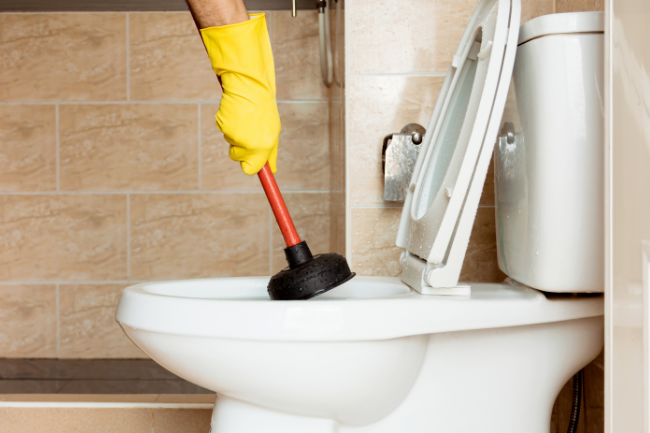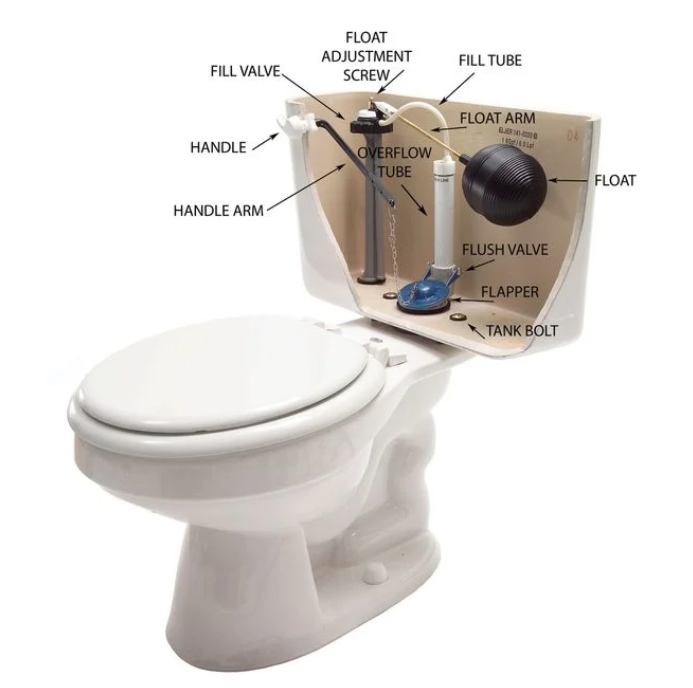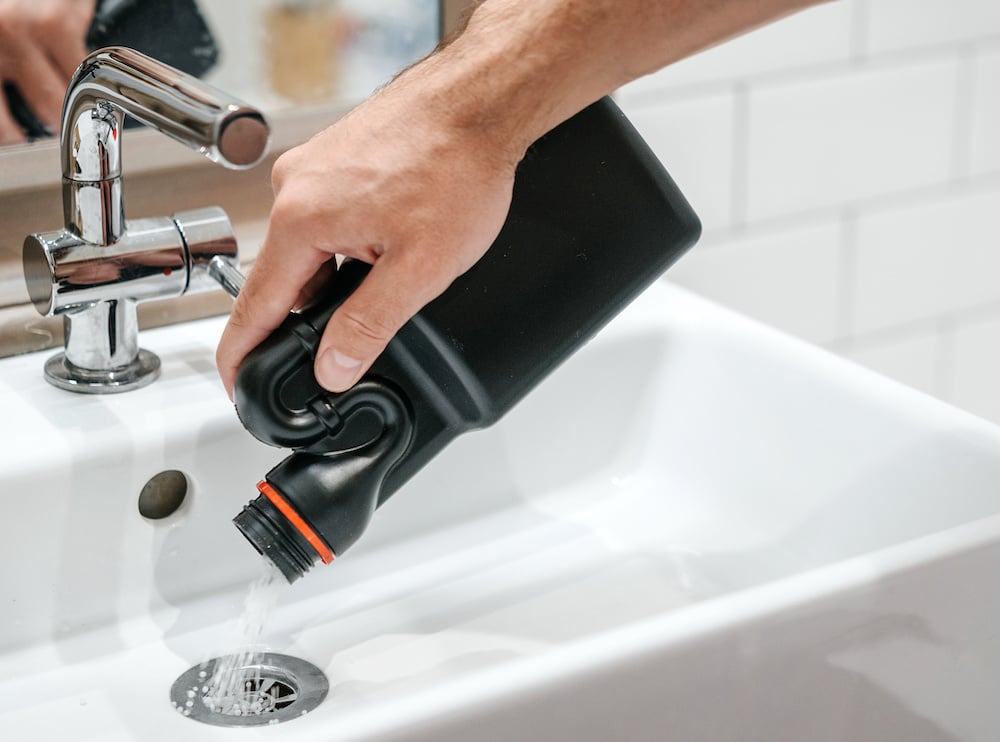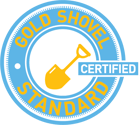DIY Tips: How To Self-Inspect Your Commercial Plumbing System
Posted by William Heinselman on

While being your own plumber may not fit the definition of glamorous, having the skills of a well-versed handyman can be very useful, especially in cases of emergency. Homeowners and business owners alike can find great benefits in being their own go-getter. No area is off limits, and that includes self-inspecting your commercial plumbing.
The “do-it-yourself” option has become an increasingly popular choice among those looking to save money or simply wanting to gain the experience. The good news is that there are plenty of online resources loaded with tutorials and informational guides to help you through the process, without the risk of creating damage. To get you started, here are a few helpful tips when preparing to check pipes on your commercial property.
Understanding Your Commercial Plumbing System
Have you ever driven a car that wasn’t yours? Even if it’s the same brand as the one you own, the make and model might be slightly different. The same can be said for plumbing.
Residential and commercial piping vary depending on their application and location of installation. Stainless steel, copper, PVC, and other styles of piping all have their own degrees of usage and effectiveness, making their potential problems unique as well.
If you’ve had a building or home inspection, you should already be aware of the type of piping built in and if there were previous concerns that needed attention. Doing routine checks and inspections are important, and professional plumbers recommend conducting an inspection every two years. In some cases, frequent checks are necessary if you live in an older home or if your property has mature trees, since the roots can push through underground piping.
Know What Problems to Look For
Just because you can’t see the plumbing, doesn’t mean a problem couldn’t exist under the surface. It’s a large reason why an initial inspection is done when someone buys a new home; this ensures that no issues which could cause continuing damage go left unchecked. This circles back to all the research you’ve done thus far.
It’s important to know the actions or telltale signs of faulty or old plumbing. Finding leaks or signs of corrosion are a good indication your pipes may need replacing.
Don’t forget to check all faucets and sinks, and flush every toilet to look for drips or evidence of clogging. Another vital item to inspect is the water heater. Depending on how excessively it has been used, or if there is rust or corrosion, the lifespan of the heater could be reached and a new one should be installed.
Have the Proper Tools
No self-respecting plumber does any job without his tool kit, so why would you? While you won’t need the most expensive tools or complex gadgets, any local hardware store should carry the bare essentials for minor repairs.
A pipe wrench, screwdriver, faucet packing, and washers will help loosen or tighten fixtures and manage leaks. Investing in a quality sink snake is another handy tool that will allow you to break up a clog in your drain, so the materials are easier to scoop or flush out. Make sure you’re dressed for the part too. It’s more than likely you’ll get a little wet and dirty, so wear clothes you won’t mind messing up a bit.

Research Different Tutorials
Whether you want a simple step-by-step instructional video, or just an article explaining the plumbing basics, any questions you have can be answered on the internet. YouTube is the obvious choice for all things video and allows you to be as specific as you want when searching for tutorials.
Plumbing websites are another valuable resource as they usually contain a blog page with useful tips and how-to’s for the plumbing novice or expert. And even if you’re looking for highly-detailed instructions or breakdowns, there are plenty of magazines, study guides, and PDFs available for download with a quick Google search.
Your Commercial Plumbing System Inspection Checklist
With the right knowledge and tools, there's a lot that you can accomplish on your own without an extra hand. We've provided a brief overview of some features to look for so far, but we also encourage you to use this commercial plumbing inspection checklist to thoroughly examine the plumbing features on your property. But, if you find yourself in need of a bit of guidance, you can always reach out to a professional plumber.
1. Check Exterior Features
When inspection the exterior features of a commercial property, start by visually inspection all exposed outdoor pipes and drains around the perimeter of the property. When doing so, look for signs of damage, such as cracks, corrosion, or leaks. Pay close attention to joints and connections, and don't forget to check for any obstructions or debris that may be blocking the flow of water in the drains.
Additionally, you'll want to take a look at external fixtures that are connected to the plumbing system. Test each faucet to ensure it turns on and off properly and look for any signs of leaks around the base or handles.
If your property has a sprinkler system, inspect the sprinkler heads for damage or misalignment. And, if there are any outdoor drains or catch basins, remove any debris or buildup to ensure proper drainage.

2. Check Interior Features
Similar to inspecting outdoor plumbing features, the first thing to do when it comes to interior features is to do a visual check. Observe all visible pipes and connections in utility rooms, basements, and crawl spaces. When doing so, be on the lookout for sings of corrosion, rust, or water stains which may indicate leaks or structural weaknesses.
After the initial visual inspection of interior features, you'll need to assess water pressure and flow. Use a pressure gauge to measure the water pressure at faucets and fixtures and check that the measurement reads at least 40 to 60 PSI. Pay attention to any fluctuations in water pressure, such as sputtering or a slow flow, as this could indicate issues with the main water supply or plumbing system.
The final part of the interior plumbing check is to inspect all plumbing fixtures, including sinks, toilets, showers, and urinals, for signs of damage or malfunction. Here you'll need to check for leaks around the base of toilets, sinks, and under cabinets.

Then, test the flushing mechanism on toilets to ensure it operates properly and doesn't run continuously after flushing. While inspecting these features, also look for any cracks or chips in porcelain fixtures that may need repair or replacement.
Beyond the fixtures themselves, keep an eye out for signs of plumbing-related damages. Use a flashlight to inspect hard-to-reach areas and look for water accumulation or moisture.
Additionally, make sure to check for water stains on walls, ceilings, or floors, which are common places to find hidden leaks or plumbing problems.
3. Examine the Drainage System
Depending on the property, drainage systems could be just about anywhere. Typically, in our homes, we think of sinks and toilets. But for commercial properties like restaurants and hospitals, there are also floor drains.
After identifying all drainage features, look for any signs of slow drainage or standing water, which could indicate a clog or blockage in the pipes. It's also important to use a flashlight to peer into drain openings and check for visible obstructions, such as hair, food debris, or sediment buildup.

Next, you'll need to test the drainage performance of each fixture by running water and observing how quickly it drains. Pay attention to any gurgling sounds or air bubbles coming from drains, as these can indicate ventilation issues or blockages in the plumbing system. And, when inspecting drainage pipes, look for any sagging or misalignment in horizontal pipes, as this can indicate poor installation or structural issues.
4. Conduct a Water Heater Inspection
Up next, you'll need to focus on your commercial water heaters. When conducting a self-inspection of water heaters, it's important to evaluate the temperature and pressure relief valves. Begin by locating the temperature and pressure relief (TPR) valve on the water heater, which is typically located near the top of the unit.
Check for signs of leaks or corrosion around the valve and ensure that it's properly connected to a discharge pipe that directs water away from the unit. To test the valve, lift the lever gently to release a small amount of water. This should cause water to flow out of the discharge pipe. If no water comes out or if the valve leaks continuously, it might be time for a replacement.
Additionally, be sure to flush the water heater tank to avoid any sediment buildup. To do this, first turn off the power or gas supply to the water heater before proceeding with flushing. Then connect a hose to the drain valve located near the bottom of the water heater tank.
Position the other end of the hose near a floor drain where water can safely be routed away. Open the drain valve and allow the water to flush out of the tank. Be cautious here, as the water may be hot.
Flush the tank until the water runs clear and free of sediment. This helps improve the efficiency and longevity of the water heater.
Just like the other items on this self-inspection checklist, you'll need to look for sign of corrosion or leakage on your water heater. Pay close attention to the bottom of the tank and around fittings and connections.
Additionally, check for water pooling or moisture accumulation around the base of the water heater. If you notice any signs of corrosion or leakage, it may be a sign of a failing water heater that requires repair or replacement.

5. Examine Your Backflow Prevention Devices
Like the name suggests, backflow prevention devices prevent contaminated water from flowing backward into the main water supply, which helps maintain water quality and safety. Though this feature is the last one on this DIY commercial plumbing checklist, that doesn't mean it should be ignored.
For your inspection of backflow prevention devices, identify where these devices are installed on your property. They are typically found near water meters or at water supply connection points.
Once identified, inspect the devices for proper installation and condition. Ensure that they're installed at the correct height and orientation according to local regulations. Then, check for any visible signs of damage, corrosion, or leaks on the devices and associated plumbing connections.
If applicable, perform a test on the backflow prevention devices to ensure they're working properly. Follow the manufacturer's instructions or consult a professional plumber for guidance on how to conduct the test safely and accurately. Finally, verify that the devices are sealing properly and preventing backflow by observing pressure readings or performing a simulated backflow test.
Addressing Common Plumbing Problems with an Expert Plumber
If you've ever tried to DIY something, you've likely run into a problem or two. But, thanks to modern technology, anybody can be their own mini-professional with the right knowledge and tools. Not only do you save time and money, but you can be sure you are prepared for any issues that may suddenly affect your plumbing and require immediate attention. Professionals are necessary on occasion, but there is a lot of power that comes from counting on yourself.
If you find that you've come across a more significant issue that can't be repaired by yourself, you can always call a professional plumber for extra help. Working with a plumber ensures that all repairs are handled carefully and accurately, preventing further issues down the road. To get in touch with a plumber to conduct an inspection of your commercial property, reach out to Express Sewer & Drain today!
Topics: Commercial Plumbing, DIY







